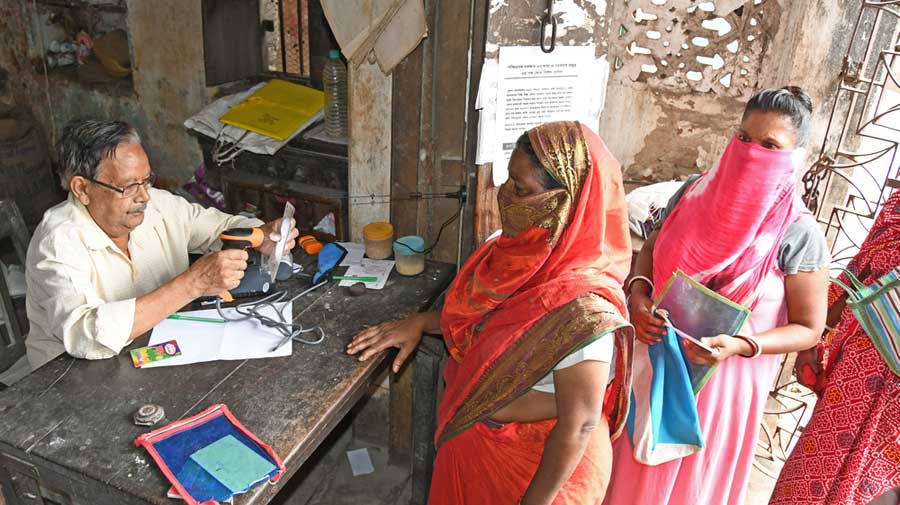A total of nine states as of now have implemented the Centre’s ‘One Nation One ration Card’ system, following which it has granted them to raise an additional Rs 23,523 crore, said an official release on Wednesday.
Andhra Pradesh, Goa, Gujarat, Haryana, Karnataka, Kerala, Telangana, Tripura and Uttar Pradesh have successfully completed the Public Distribution System (PDS) reforms.
Uttar Pradesh has emerged the biggest beneficiary of this scheme with an additional borrowing window of Rs 4,851 crore, followed by Karnataka at Rs 4,509 crore and Gujarat at Rs 4,352 crore.
Department of Food and Public Distribution in the Ministry of Consumer Affairs, Food and Public Distribution is the Nodal Department to certify that a State has met the conditions stipulated for this reform, the Finance Ministry statement said.
It also informed that to become eligible for additional borrowing, states have to complete the process by December 31, 2020, and added that several other states are likely to finish the reform within the stipulated time.
In addition to the One Nation One Ration Card, it said, other reforms specified as a precondition to avail additional borrowing are : ease of doing business reform, urban local body/utility reforms and power sector reforms.
In view of the challenges posed by the COVID-19 pandemic for mobilisation of financial resources, the Indian government has strengthened the hands of the States through multiple measures including grant of additional borrowing permission of 2 per cent of the Gross State Domestic Product (GSDP) during 2020-21,” the statement said.
“This has enabled the States to mobilise additional financial resources to fight the pandemic and maintain the standards of service delivery to the public”, it said.
However, it said, to ensure long-term debt sustainability and prevent any adverse impact on future, a part of the additional borrowing was linked to the States carrying out reforms in the sectors critical for service delivery to the citizens.
However, it said, to ensure long-term debt sustainability and prevent any adverse impact on future, a part of the additional borrowing was linked to the States carrying out reforms in the sectors critical for service delivery to the citizens.










